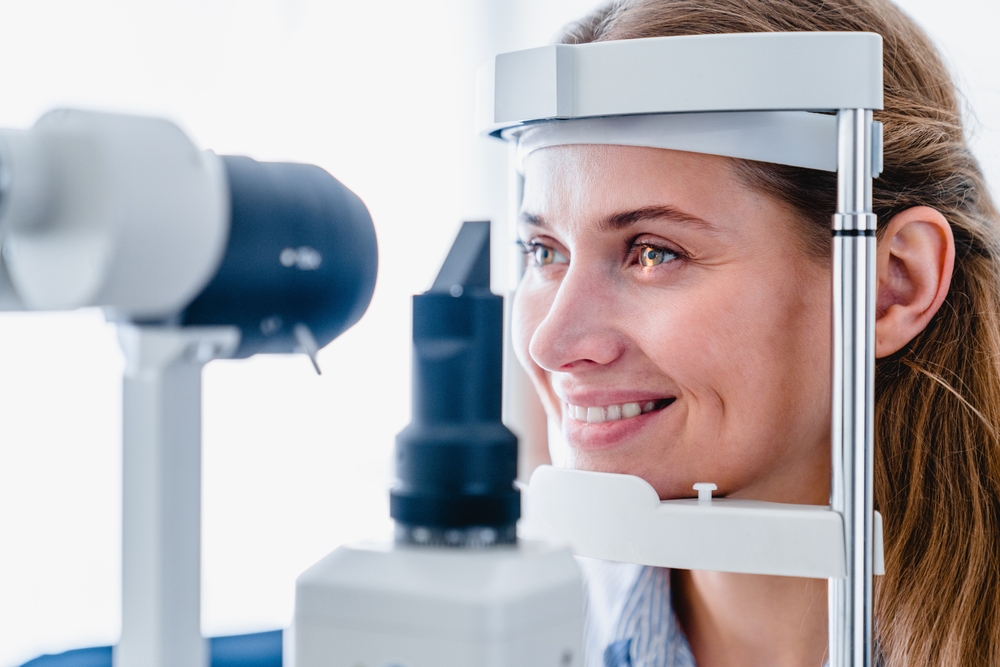
What is Binocular Vision and How Are Binocular Vision Problems Treated?
Binocular vision refers to the ability of both eyes to work together as a team to create a single, clear image. This is essential for depth perception, hand-eye coordination, and overall visual clarity. When the eyes don't align or focus together properly, it can lead to a variety of issues, including double vision, blurred vision, headaches, and difficulty with reading or other tasks requiring visual concentration.
Understanding Binocular Vision
To understand binocular vision, it’s helpful to know how the eyes and brain work together. Each eye captures its own image of the world, slightly different from the other. These two images are sent to the brain, where they are combined to form a single 3D picture. This process is called fusion, and it’s critical for depth perception and spatial awareness. Any disruption in the alignment of the eyes or their ability to work in unison can interfere with this process.
Symptoms of Binocular Vision Problems
When binocular vision is disrupted, a person may experience a range of symptoms, including:
• Double vision (diplopia)
• Eye strain or discomfort
• Difficulty focusing, especially when reading
• Blurred vision
• Headaches
• Fatigue when doing visual tasks
• Poor depth perception or difficulty with hand-eye coordination
Some people may not even be aware that they have a binocular vision problem, as their brain may adapt by suppressing one eye’s input. However, this compensation can lead to long-term issues if left untreated.
Common Binocular Vision Disorders
There are several types of binocular vision disorders, including:
• Strabismus: This is a condition where the eyes do not align properly. One eye may turn in, out, up, or down while the other focuses correctly. It can occur constantly or intermittently and is more common in children but can persist or develop in adulthood.
• Convergence Insufficiency: This occurs when the eyes have difficulty working together while focusing on close-up objects, like reading a book. The eyes may not converge, or turn inward, enough to focus on nearby objects, leading to visual discomfort.
• Amblyopia (Lazy Eye): Although not always directly a binocular vision issue, amblyopia occurs when one eye becomes weaker than the other, often because the brain starts ignoring the image from the weaker eye. This can cause long-term vision problems if not corrected.
How is Binocular Vision Problems Treated?
Treating binocular vision problems typically depends on the specific condition, its severity, and the patient’s overall visual health. In many cases, prescription glasses or contact lenses can help address binocular vision problems by improving the focus of each eye. This can make it easier for the eyes to work together and relieve symptoms such as eye strain and headaches.
Prism lenses are often used to treat misalignment of the eyes. These special lenses bend light before it enters the eye, helping the eyes work together more effectively. Prism lenses can be incorporated into regular eyeglasses to reduce double vision and improve eye alignment.
For conditions like amblyopia, patching may be recommended. This involves covering the stronger eye for several hours each day, forcing the brain to rely on the weaker eye. Over time, this can help strengthen the weaker eye and improve binocular vision.
In severe cases of strabismus or other misalignment issues, surgery may be recommended to physically adjust the muscles around the eyes. This procedure can correct the positioning of the eyes, allowing them to align properly and function better together. Eye muscle surgery is generally performed on an outpatient basis, and recovery time is usually short.
When to See an Eye Doctor
If you or your child experience any symptoms of binocular vision problems, it’s essential to seek an evaluation from an optometrist. Early detection and treatment can prevent long-term vision issues and help improve overall quality of life. Regular comprehensive eye exams are crucial for catching these problems early, especially in children, as they may not always be able to articulate their symptoms.
Get in Touch with Maxivision Eye Care Today
Binocular vision is a critical aspect of how we see and interact with the world. When the eyes fail to work together, it can lead to a variety of symptoms that affect daily tasks like reading, driving, and sports. With the right treatment, most binocular vision problems can be managed effectively, allowing for clear, comfortable vision.
If you suspect any issues with your or your child’s binocular vision, contact Maxivision Eye Care for a thorough evaluation and personalized treatment plan. Visit our office in Naperville, Illinois, or call (630) 904-1900 to book your appointment today.






